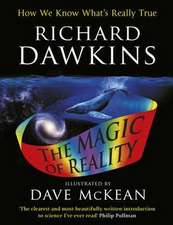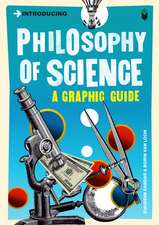Beyond Reduction: Philosophy of Mind and Post-Reductionist Philosophy of Science: Philosophy of Mind Series
Autor Steven Horsten Limba Engleză Paperback – mar 2012
| Toate formatele și edițiile | Preț | Express |
|---|---|---|
| Paperback (1) | 224.65 lei 31-37 zile | |
| Oxford University Press – mar 2012 | 224.65 lei 31-37 zile | |
| Hardback (1) | 492.06 lei 31-37 zile | |
| Oxford University Press – 18 oct 2007 | 492.06 lei 31-37 zile |
Din seria Philosophy of Mind Series
- 25%
 Preț: 534.53 lei
Preț: 534.53 lei - 13%
 Preț: 597.31 lei
Preț: 597.31 lei - 28%
 Preț: 424.05 lei
Preț: 424.05 lei - 7%
 Preț: 178.74 lei
Preț: 178.74 lei - 21%
 Preț: 338.16 lei
Preț: 338.16 lei -
 Preț: 368.81 lei
Preț: 368.81 lei - 26%
 Preț: 559.15 lei
Preț: 559.15 lei -
 Preț: 252.15 lei
Preț: 252.15 lei - 14%
 Preț: 443.36 lei
Preț: 443.36 lei - 28%
 Preț: 375.61 lei
Preț: 375.61 lei -
 Preț: 281.31 lei
Preț: 281.31 lei - 27%
 Preț: 657.29 lei
Preț: 657.29 lei - 10%
 Preț: 271.94 lei
Preț: 271.94 lei - 9%
 Preț: 449.67 lei
Preț: 449.67 lei - 8%
 Preț: 194.74 lei
Preț: 194.74 lei - 7%
 Preț: 190.27 lei
Preț: 190.27 lei - 7%
 Preț: 198.58 lei
Preț: 198.58 lei -
 Preț: 322.41 lei
Preț: 322.41 lei - 30%
 Preț: 552.07 lei
Preț: 552.07 lei - 30%
 Preț: 616.72 lei
Preț: 616.72 lei - 22%
 Preț: 496.37 lei
Preț: 496.37 lei -
 Preț: 247.39 lei
Preț: 247.39 lei -
 Preț: 319.49 lei
Preț: 319.49 lei - 30%
 Preț: 549.78 lei
Preț: 549.78 lei -
 Preț: 295.97 lei
Preț: 295.97 lei -
 Preț: 287.11 lei
Preț: 287.11 lei - 30%
 Preț: 614.59 lei
Preț: 614.59 lei -
 Preț: 229.93 lei
Preț: 229.93 lei - 22%
 Preț: 362.30 lei
Preț: 362.30 lei - 30%
 Preț: 582.93 lei
Preț: 582.93 lei - 11%
 Preț: 296.18 lei
Preț: 296.18 lei - 26%
 Preț: 585.39 lei
Preț: 585.39 lei - 17%
 Preț: 659.74 lei
Preț: 659.74 lei - 30%
 Preț: 551.01 lei
Preț: 551.01 lei - 25%
 Preț: 487.29 lei
Preț: 487.29 lei - 24%
 Preț: 448.68 lei
Preț: 448.68 lei - 11%
 Preț: 232.70 lei
Preț: 232.70 lei - 13%
 Preț: 512.78 lei
Preț: 512.78 lei - 25%
 Preț: 511.14 lei
Preț: 511.14 lei - 23%
 Preț: 720.56 lei
Preț: 720.56 lei
Preț: 224.65 lei
Preț vechi: 244.74 lei
-8% Nou
Puncte Express: 337
Preț estimativ în valută:
42.98€ • 44.88$ • 35.50£
42.98€ • 44.88$ • 35.50£
Carte tipărită la comandă
Livrare economică 04-10 aprilie
Preluare comenzi: 021 569.72.76
Specificații
ISBN-13: 9780199914692
ISBN-10: 0199914699
Pagini: 242
Dimensiuni: 234 x 155 x 15 mm
Greutate: 0.35 kg
Editura: Oxford University Press
Colecția OUP USA
Seria Philosophy of Mind Series
Locul publicării:New York, United States
ISBN-10: 0199914699
Pagini: 242
Dimensiuni: 234 x 155 x 15 mm
Greutate: 0.35 kg
Editura: Oxford University Press
Colecția OUP USA
Seria Philosophy of Mind Series
Locul publicării:New York, United States
Notă biografică
Steven Horst is Chair, Department of Philosophy, Wesleyan University; author of Symbols, Computation, and Intentionality: A Critique of the Computational Theory of Mind and Laws, Mind, and Free Will.
Recenzii
Horst is successful in the long awaited task of bridging the gap between contemporary Philosophy of Mind and the Philosophy of Science

















